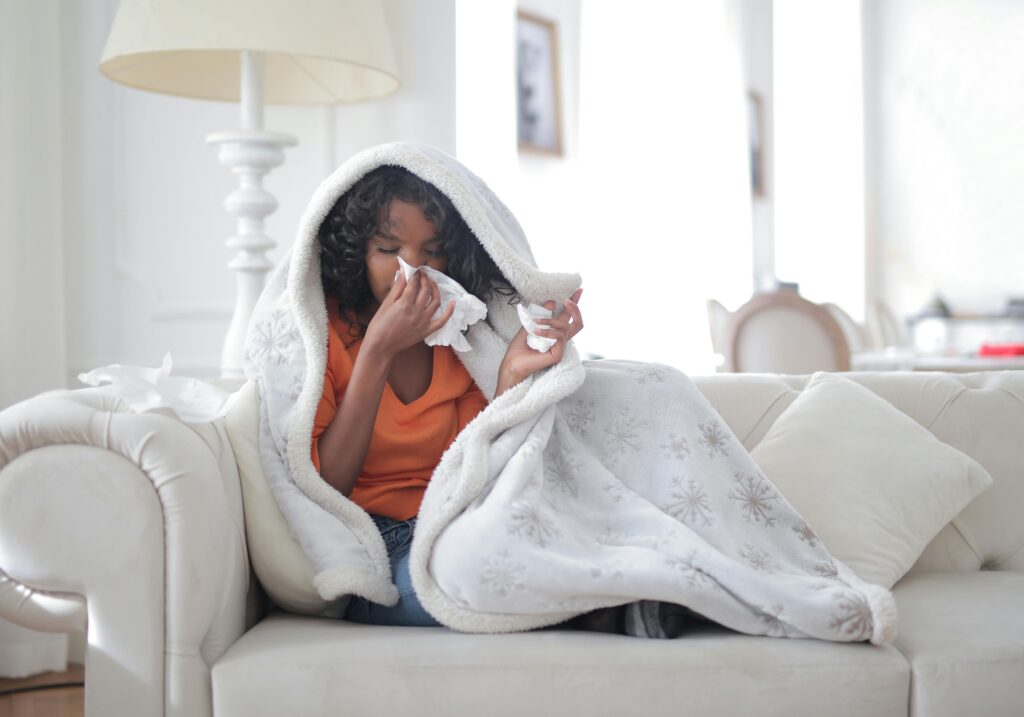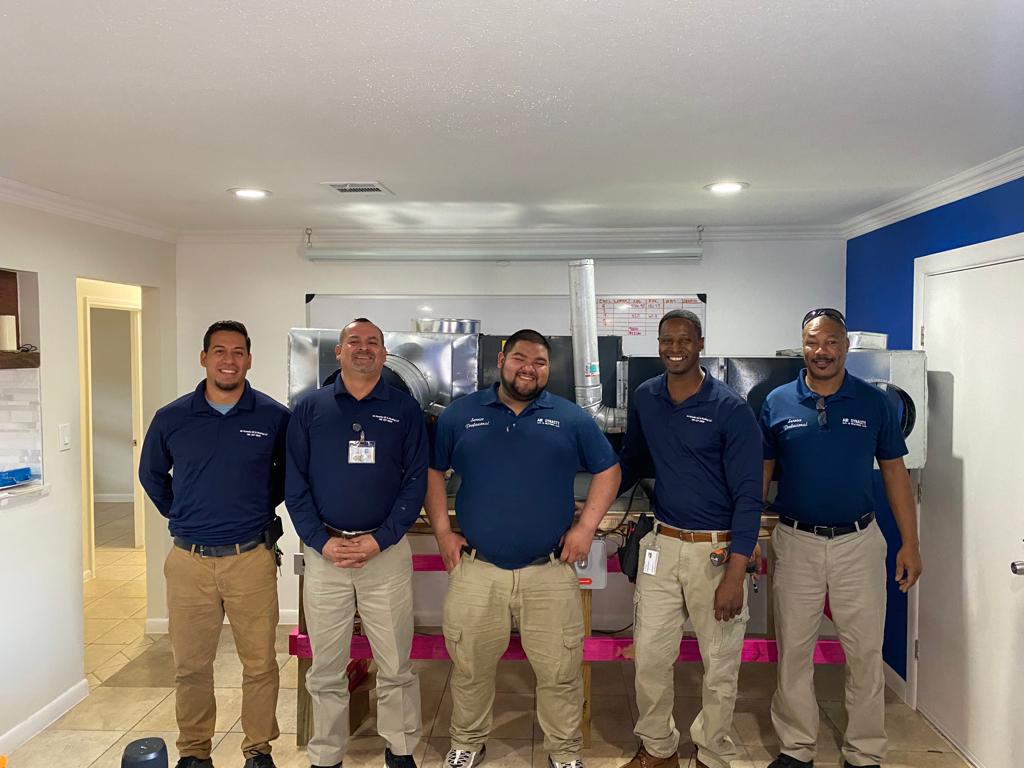
Photo by: Kaboompics.com: https://shorturl.at/RtNOj
Improving indoor air quality can significantly enhance your health and well-being.
The key to managing these winter allergies often lies in improving your indoor air quality (IAQ). Let’s explore how your home environment affects allergies and what practical steps you can take to breathe easier during the colder months.
Why Winter Allergies Are Different
Unlike spring and fall, when pollen is the primary trigger for allergies, winter allergies are caused by indoor allergens. Because we keep our homes sealed up tightly to stay warm, these allergens have no escape and tend to build up.
Some common culprits include:
Dust Mites: These microscopic pests thrive in warm, humid spaces and are a leading cause of allergic reactions.
Pet Dander: Even if you’re not allergic to your pets, their fur and dander can irritate sensitive sinuses.
Mold: Cold, damp conditions can encourage mold growth in areas like bathrooms, basements, or around windows.
Poor Ventilation: Without fresh air circulation, pollutants linger and accumulate, impacting overall air quality.
If your allergies seem worse in winter, your home’s air quality might be the culprit.
How Your HVAC System Affects Indoor Air Quality
Your HVAC system plays a crucial role in circulating and filtering the air in your home. However, if it’s not properly maintained, it can contribute to poor indoor air quality.
Dirty Air Filters: A clogged air filter can’t effectively trap allergens, allowing dust, pollen, and pet hair to recirculate.
Old Ductwork: Leaky or dirty ducts can spread contaminants throughout your home.
Inefficient Heating: If your system struggles to maintain consistent temperatures, it can create pockets of humidity that promote mold growth.
Regular HVAC maintenance, like the services provided by Air Dynasty, can help fix these issues and ensure your system runs efficiently all winter. Visit our services page for more information.
Practical Solutions to Improve Indoor Air Quality

Photo by: Andrea Piacquadio: https://shorturl.at/BR4TR
Improving your home’s air quality doesn’t have to be complicated. Here are some steps you can take to create a healthier, allergy-free environment:
- Upgrade Your Air Filters
Standard HVAC filters may not be enough to trap fine allergens. Consider installing HEPA filters or high-efficiency pleated filters. These can capture smaller particles, providing a noticeable improvement in air quality. - Invest in an Air Purifier
Portable or whole-home air purifiers can effectively remove pollutants like dust, mold spores, and pet dander. Air purifiers work alongside your HVAC system to create a cleaner breathing environment. - Schedule Regular HVAC Maintenance
A well-maintained HVAC system can make a huge difference in air quality. Air Dynasty’s reliable same day service ensures that your heating system, air conditioner, and ductwork are clean and functioning properly. - Control Humidity Levels
Mold and dust mites thrive in humid environments. Keep your home’s humidity between 30% and 50% using a dehumidifier or by addressing ventilation issues. - Seal and Insulate Your Ductwork
Old or leaky ducts can spread contaminants instead of trapping them. Sealing and insulating your ductwork during an ac and heating installation or repair can fix this problem while boosting efficiency.
The Benefits of Addressing IAQ
When you take steps to improve indoor air quality, you’ll notice several benefits:
- Relief from Allergy Symptoms: Fewer allergens in your home mean less sneezing, coughing, and sinus irritation.
- Better Sleep: Clean air helps you sleep soundly without the disruption of allergy symptoms.
- Energy Efficiency: Upgrades like duct sealing and new filters also improve your system’s efficiency, saving money on heating bills.
By focusing on practical solutions, you can create a cozy, comfortable space for your family during the winter months.
At Air Dynasty, we know how important indoor air quality is for your family’s comfort and health. From duct cleaning to providing fast, same day repair services for your HVAC system, we’re here to help.
Our team specializes in ac and heating installation and maintenance, so you can trust us to handle everything from fixing a furnace to optimizing your heating system. With reliable service and a commitment to quality, Air Dynasty makes it easy to improve your home’s air quality.
Ready to breathe easier this winter? Call us at (346)-560-5252 or book an appointment online today!
Frequently Asked Questions About Winter Allergies and Indoor Air Quality (FAQs)
1. Can my HVAC system really affect my allergies?
Yes, your HVAC system directly impacts the air you breathe. A poorly maintained system can circulate allergens, while a clean, efficient system helps trap and remove them.
2. How often should I change my air filter?
For optimal air quality, change your HVAC filter every 1-3 months, or more frequently if you have pets or severe allergies.
3. What’s the best way to fix poor indoor air quality?
A combination of solutions—like upgrading filters, using air purifiers, and scheduling heating system maintenance—provides the best results.
4. Are there signs that my ducts need repair or cleaning?
Yes! Signs include uneven heating, dust buildup around vents, or higher energy bills. Fixing your ducts can improve both air quality and system efficiency.5. Is winter a good time for HVAC upgrades?
Absolutely. Winter is ideal for addressing heating repair needs or installing new components to improve your home’s air quality and comfort. Visit this site for more information.


